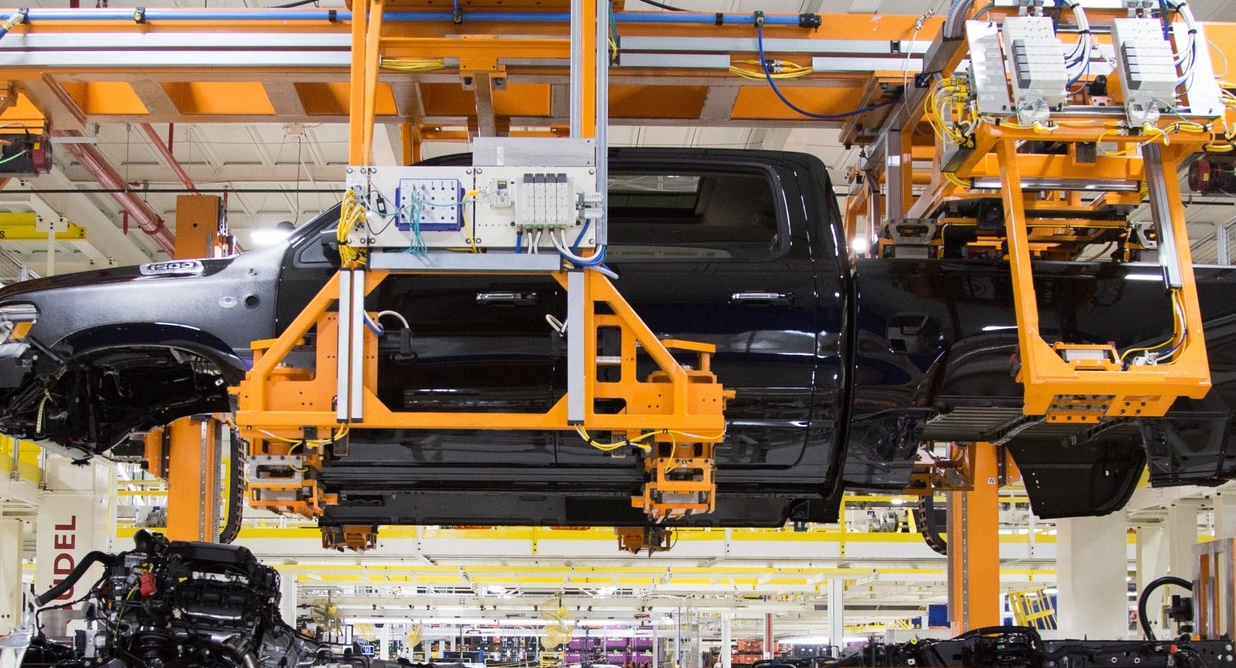Already a subscriber? Make sure to log into your account before viewing this content. You can access your account by hitting the “login” button on the top right corner. Still unable to see the content after signing in? Make sure your card on file is up-to-date.
Following President Trump’s rollout of reciprocal tariffs, Stellantis has confirmed the temporary suspension of production at key assembly plants in Mexico and Canada.
Some shit you should know before you read: Despite President Trump not announcing new tariffs on Canada and Mexico yesterday, both countries will still feel the impact of the 25% tariff on foreign vehicles not made in the United States. While the policy targets global auto imports, Canada and Mexico are major manufacturing hubs for cars and parts headed for the US. These plants not only supply finished vehicles but also contribute essential components—such as engines, transmissions, and electrical systems—that are integral to the North American automotive supply chain.

What’s going on now: In a major announcement, Stellantis, the brand behind Jeep, Chrysler, Dodge, and Ram, revealed it will temporarily pause production at its assembly plants in Mexico and Canada in response to the newly implemented 25% US tariff on imported vehicles and auto parts. The company confirmed that operations at its Toluca plant in Mexico and Windsor plant in Canada will be halted beginning April 7, impacting production of key models like the Jeep Compass, Wagoneer, Chrysler Pacifica, and Dodge Charger Daytona.
In an internal email circulating online, Antonio Filosa, Chief Operating Officer for the Americas, told employees, “We are continuing to assess the medium- and long-term effects of these tariffs on our operations, but also have decided to take some immediate actions.” He added that the moves are necessary “given the current market dynamics,” and stressed that Stellantis is working to adapt quickly to policy shifts during these “challenging times.”
Some say the production pauses will have ripple effects in the US, with approximately 850 hourly workers being temporarily laid off at supporting facilities in Michigan and Indiana. The decision has drawn criticism from labor unions on both sides of the border. United Auto Workers President Sean Fain blasted the move as “a completely unnecessary choice,” and accused Stellantis of “playing games with workers’ lives” and blaming corporate leadership for using employees as “collateral damage.”
Another company’s approach: Ford, which has some of its operations in Mexico, announced a more proactive, consumer-focused approach. On the same day the tariffs took effect, Ford launched a national sales campaign called “From America, For America,” offering employee pricing—traditionally reserved for staff—to all buyers on most 2024 and 2025 Ford and Lincoln models.
In a statement, the company said, “We understand that these are uncertain times for many Americans. Whether it’s navigating the complexities of a changing economy or simply needing a reliable vehicle for your family, we want to help.”






